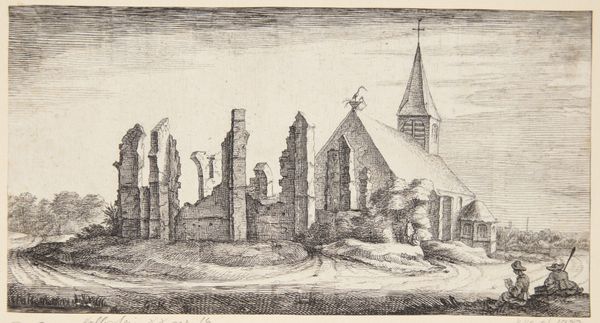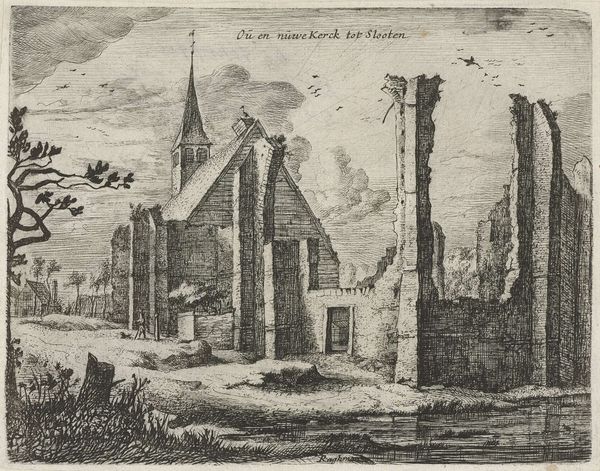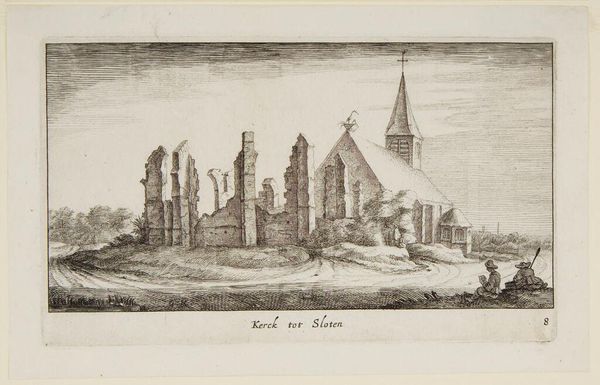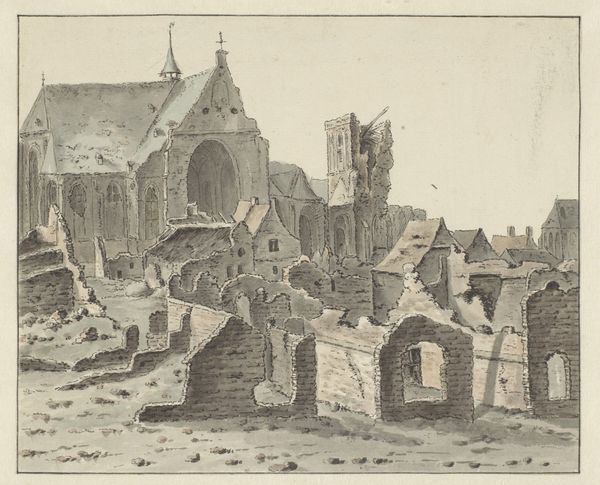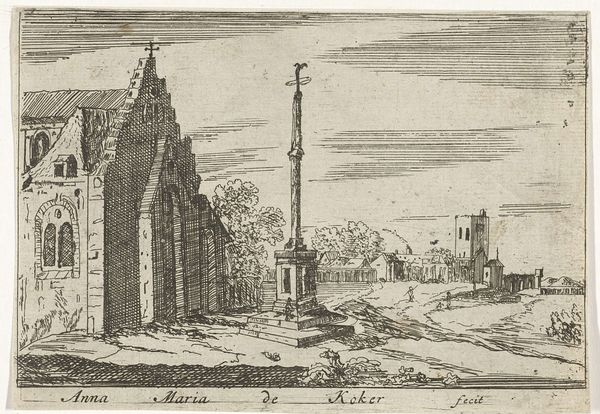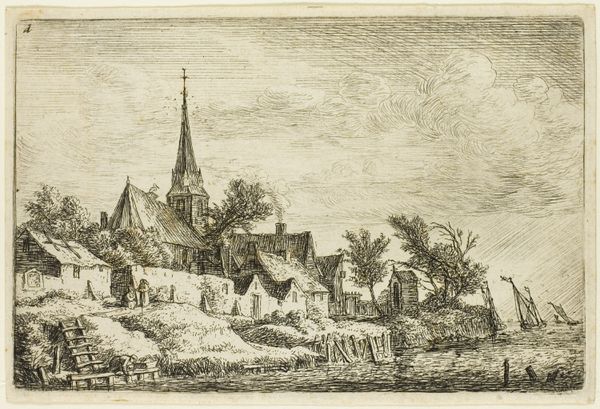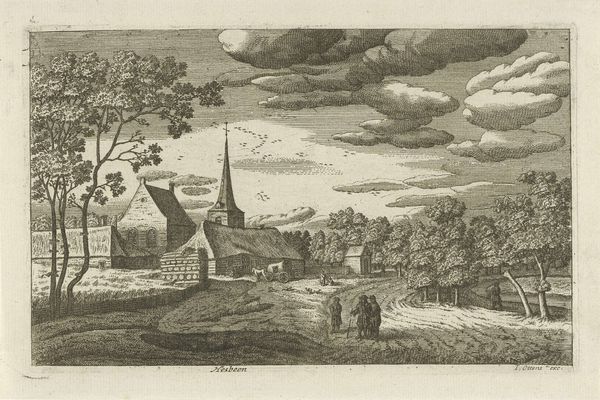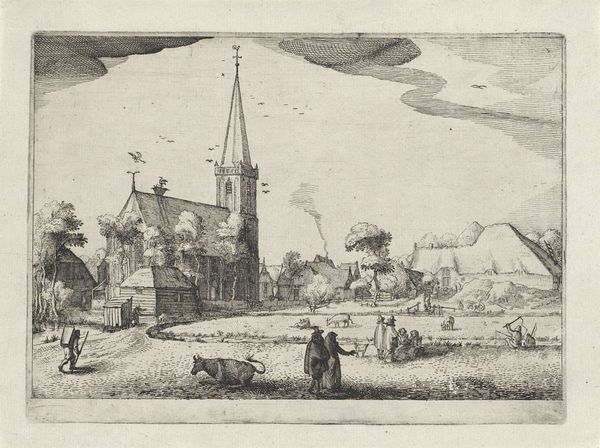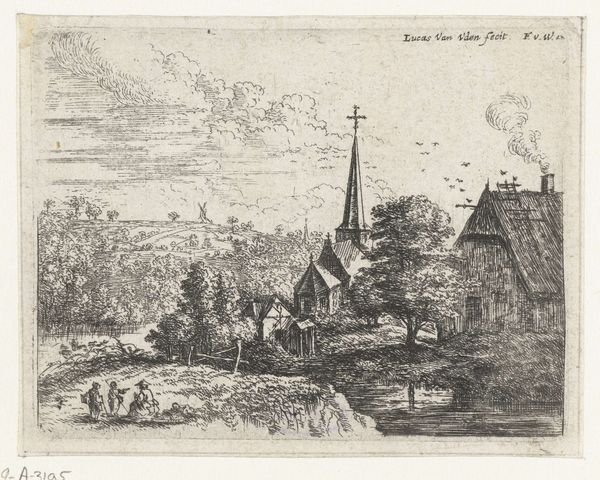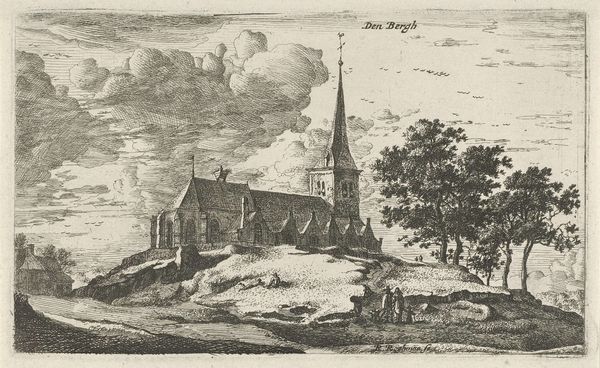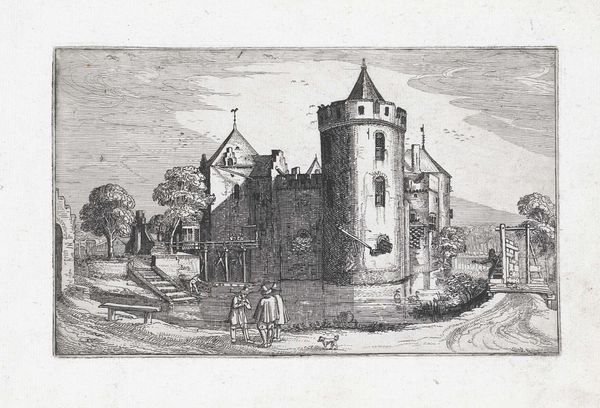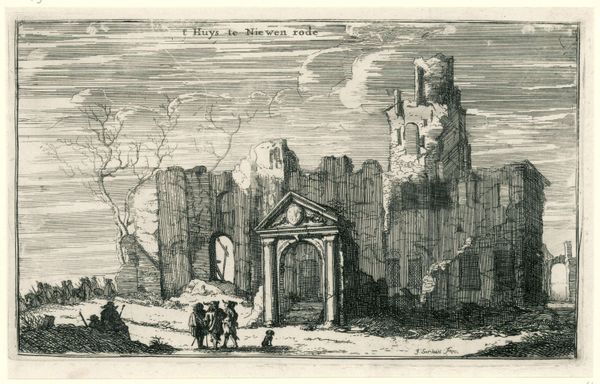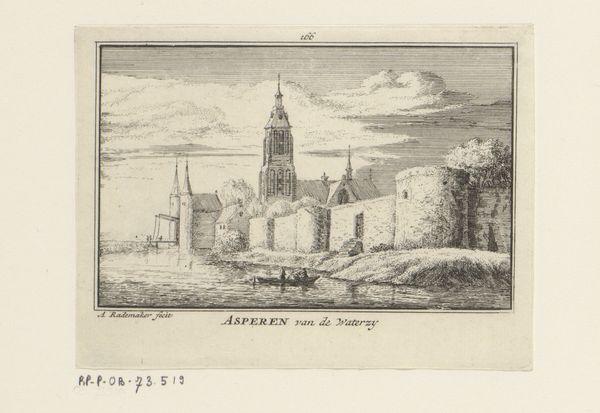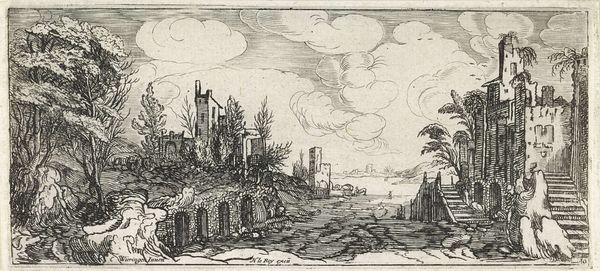
print, engraving
#
medieval
#
dutch-golden-age
# print
#
landscape
#
engraving
Dimensions: height 120 mm, width 223 mm
Copyright: Rijks Museum: Open Domain
This print of the church at Sloten was made by Geertruydt Roghman in the mid-17th century, using the technique of etching. Roghman likely used a metal plate, coated with wax, into which she scratched her design. The plate would then have been immersed in acid, which bit into the exposed metal. The longer it was left in the acid, the deeper the lines would be etched, and the darker they would appear in the print. This process allowed for a relatively quick means of producing multiple images, at a time when printed pictures were in high demand. The etching process allowed Roghman to create textures and a sense of depth. It also allowed the artist to be precise, delineating the architecture of the church at Sloten, the texture of the stone and brickwork, and the surrounding landscape. The whole speaks of the value placed on both the skills of draughtsmanship and the technologies of reproduction.
Comments
No comments
Be the first to comment and join the conversation on the ultimate creative platform.
